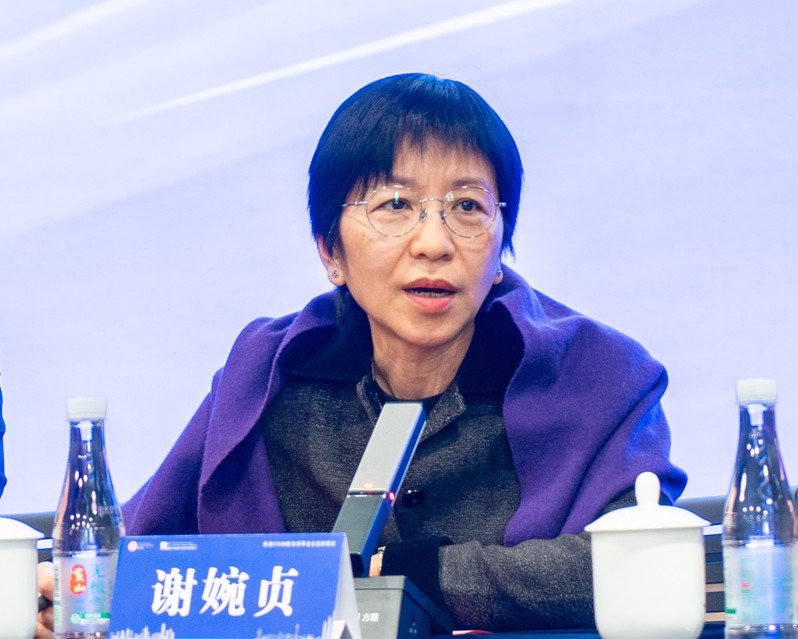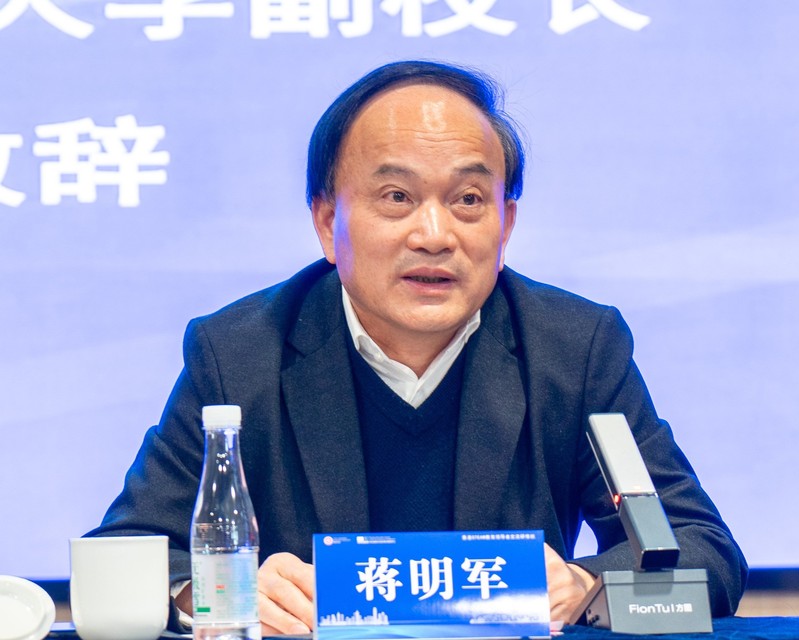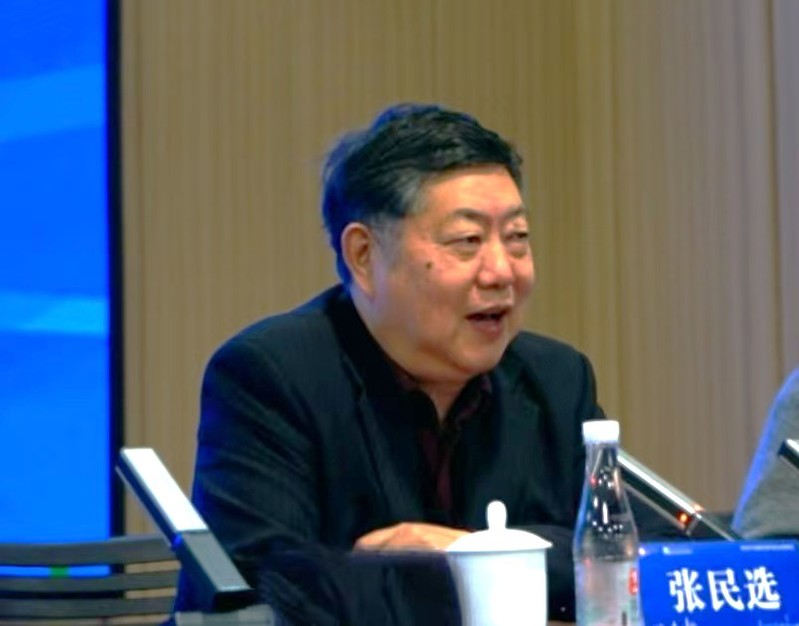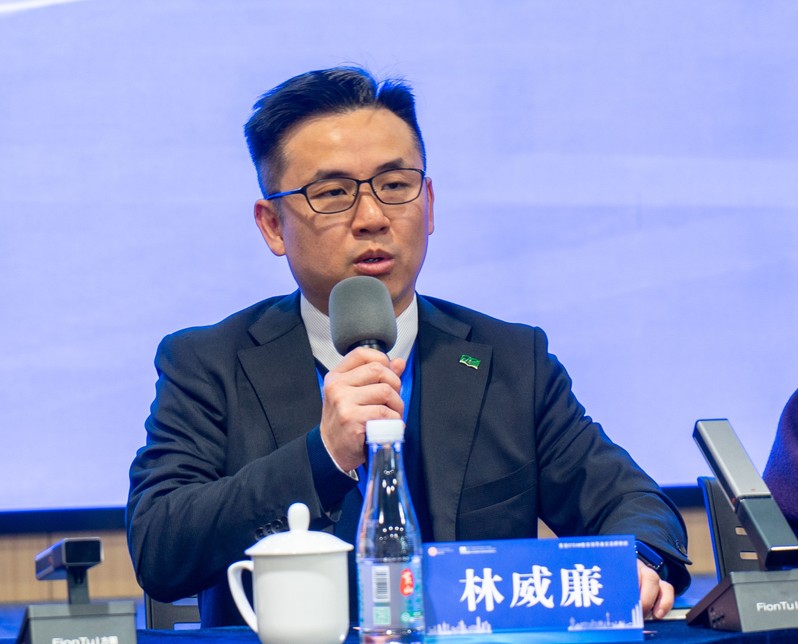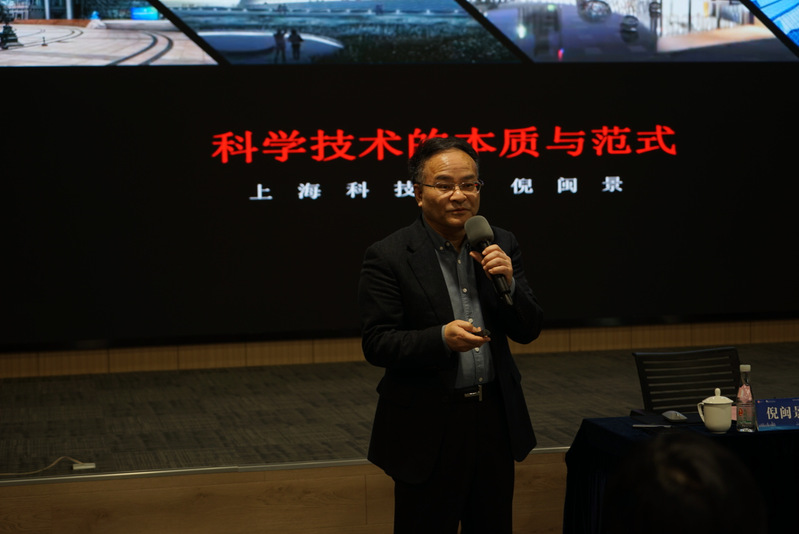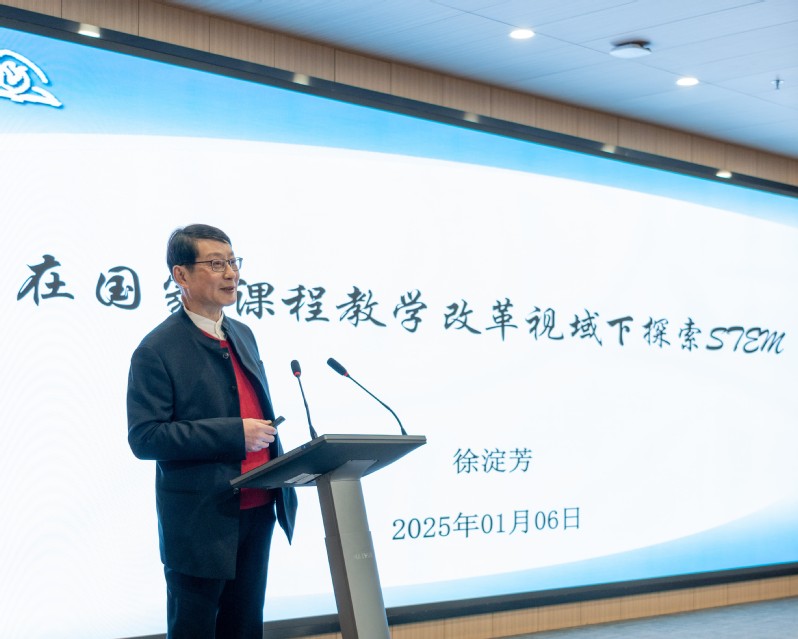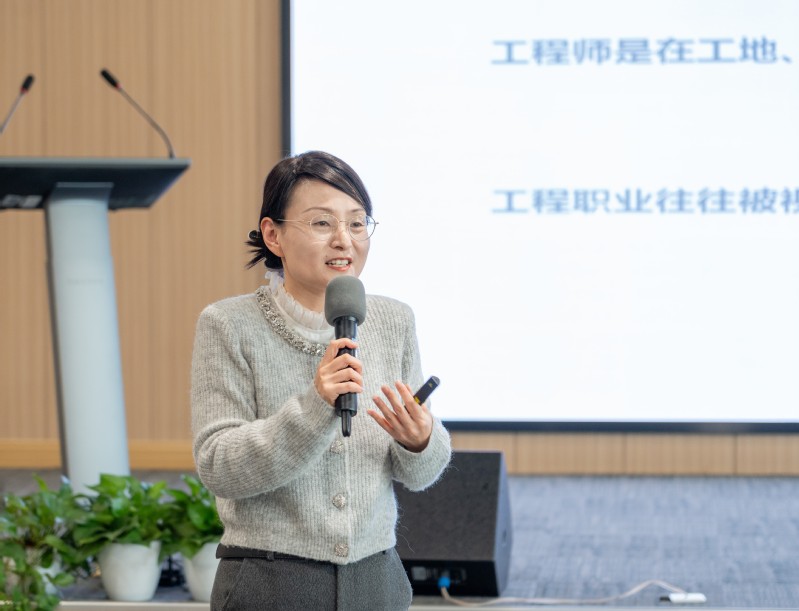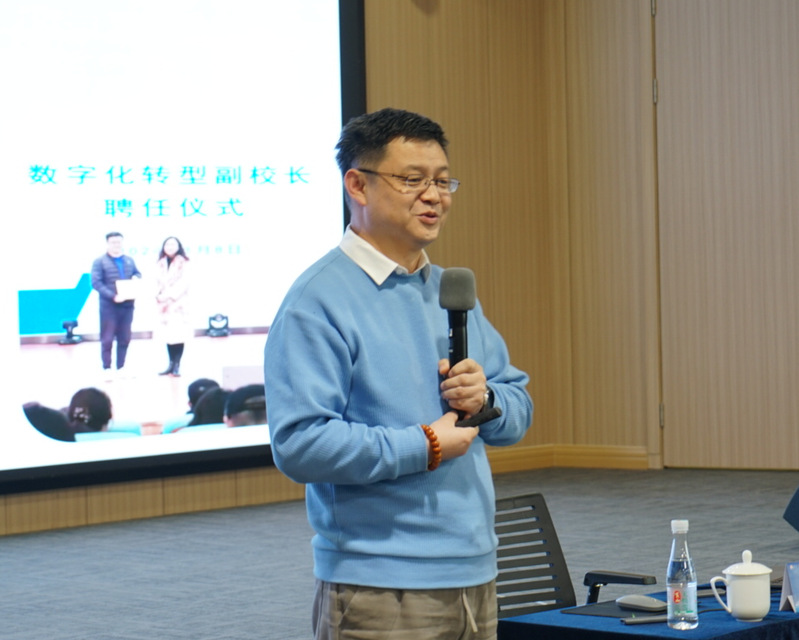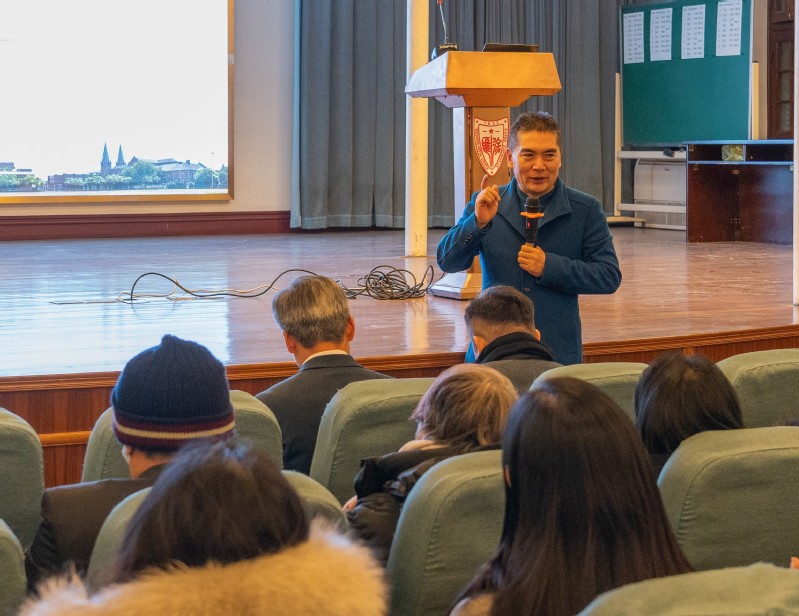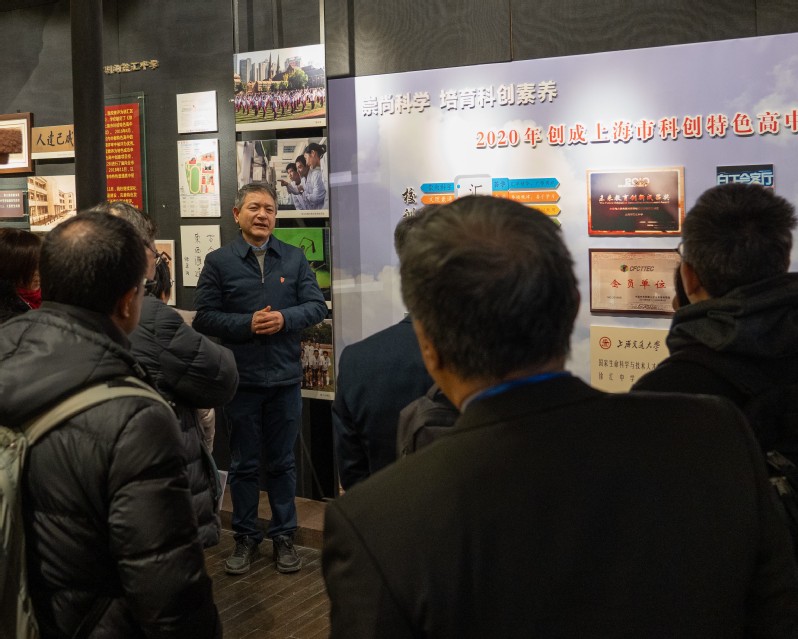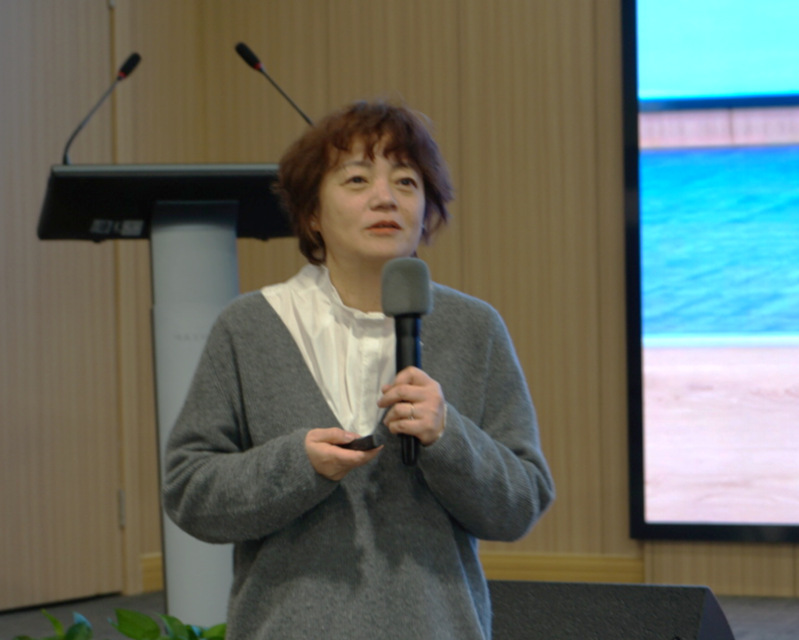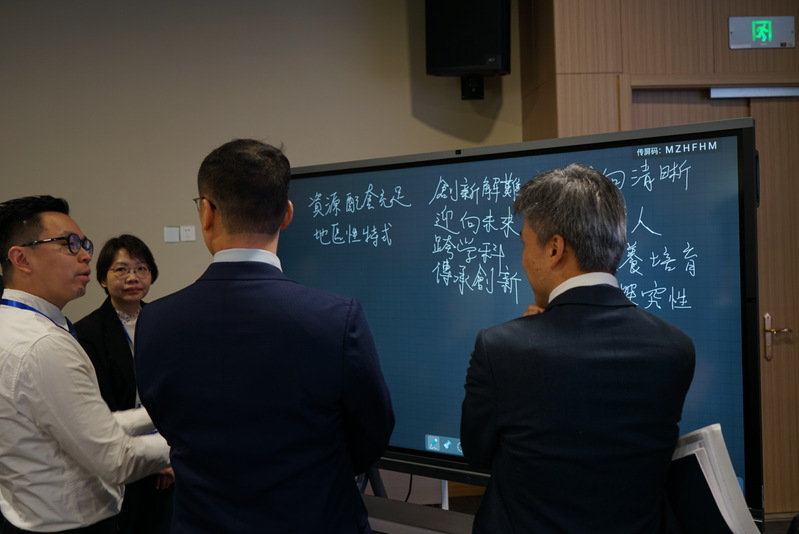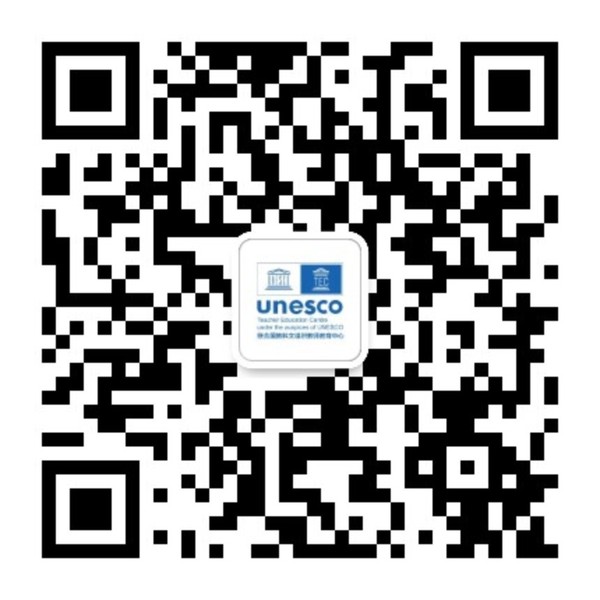On the morning of January 10, 2025, the closing ceremony of the Hong Kong STEAM Education Leaders Exchange and Training Program was successfully held at the UNESCO Teacher Education Centre (TEC). Attendees included Professor Jiang Mingjun, Vice President of Shanghai Normal University; Ms. Tse Yuen-ching, Principal Assistant Secretary (Curriculum Support) of the Education Bureau of the Government of the Hong Kong Special Administrative Region (Hong Kong Education Bureau); Dr. Lam Wai-lim, Chief Curriculum Development Officer (Science); three Curriculum Development Officers specializing in science and technology; Professor Zhang Minxuan, Director of TEC; Professor Hu Guoyong, Deputy Director of TEC; and 30 primary and secondary school principals and teachers from Hong Kong. The ceremony was chaired by Professor Hu Guoyong.
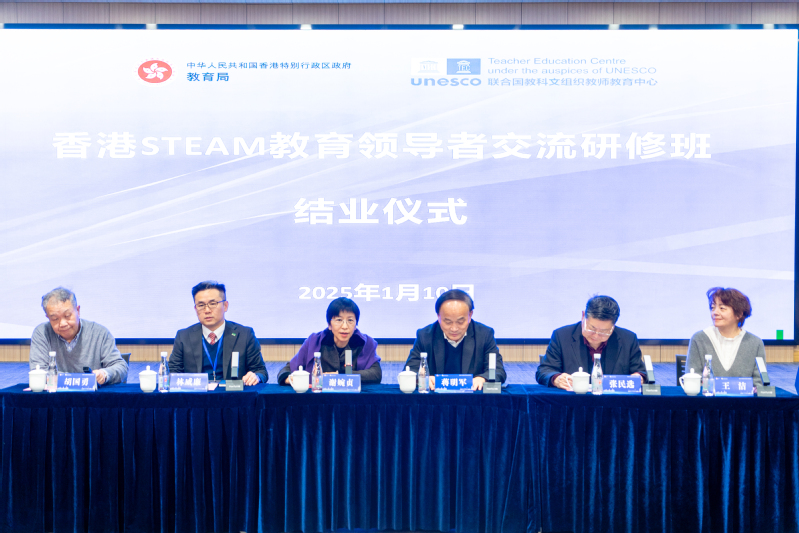
At the closing ceremony, Ms. Tse Yuen-ching, Principal Assistant Secretary of the Hong Kong Education Bureau, delivered a speech. She stated that the program had provided a valuable learning platform for Hong Kong educators, enabling them to gain an in-depth understanding of Shanghai’s rich experience in science and technology innovation education and draw inspiration from it. Ms. Tse expressed her hope that Hong Kong could better align with national policies to promote the localized development of STEAM education. Professor Jiang Mingjun also delivered a speech on behalf of Shanghai Normal University. He highly praised the fruitful achievements of the program and extended warm congratulations to all teachers who had successfully completed the training. He emphasized that Shanghai Normal University had carried out a series of reforms in STEAM teacher training in recent years and established an Institute of Artificial Intelligence in Education, adding that he looked forward to more interactions and cooperation between the two regions in this field in the future.
|
|
|
Professor Zhang Minxuan, Director of TEC, addressed the ceremony. He noted that the program was just the beginning of educational exchanges between Shanghai and Hong Kong. Looking ahead, he expressed hope that more Shanghai teachers would visit Hong Kong for exchanges, and through continuous interaction and cooperation, the two brilliant pearls of Shanghai and Hong Kong would shine even more brightly. Dr. Lam Wai-lim, in his speech, extended sincere thanks to the TEC team, highlighting that the successful organization of this diverse program was made possible by the patient refinement and repeated communication on the training plan by Professor Zhang Minxuan, Professor Hu Guoyong, Dr. Song Qingqing (class teacher), and the dedicated work of all volunteers.
|
|
|
Finally, all attendees witnessed the certificate presentation ceremony, bringing the program to a successful conclusion.
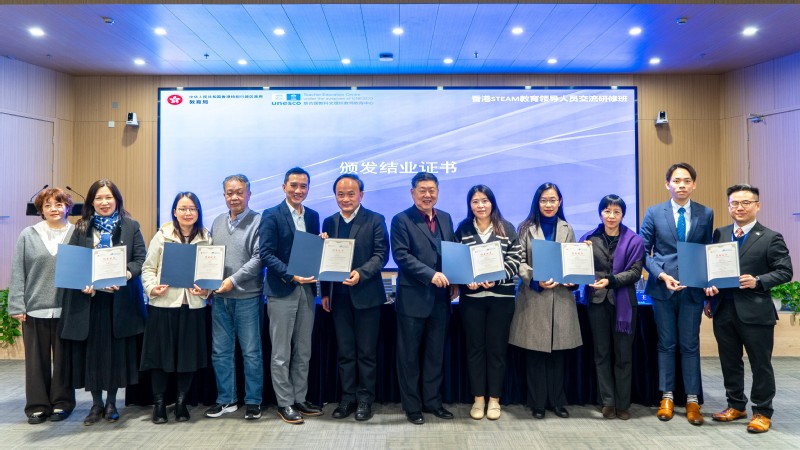

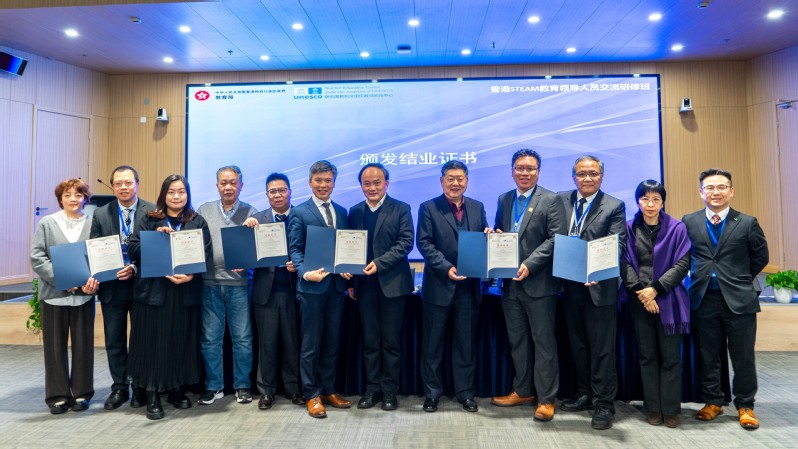
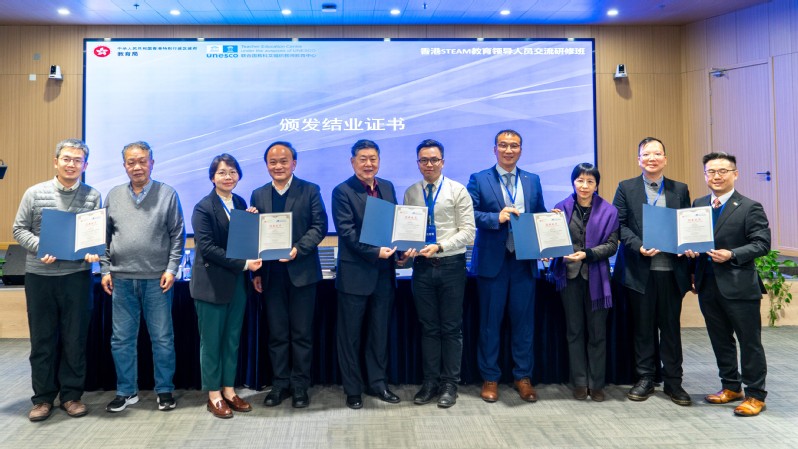
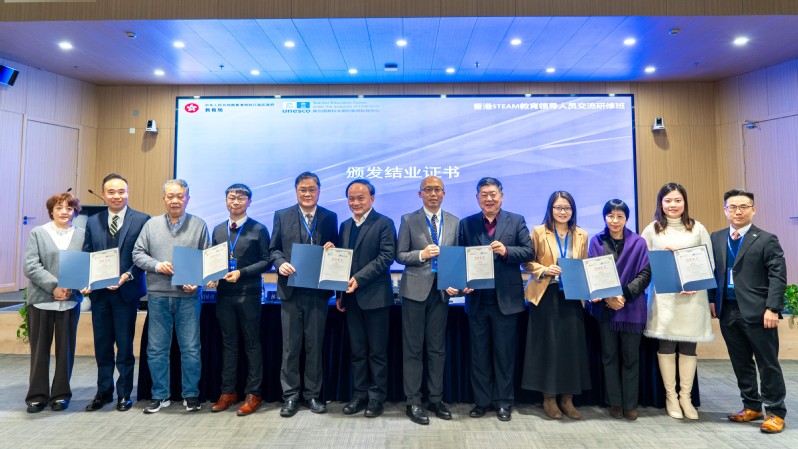
Looking back at the rich content of the program, thematic lectures and on-site visits stood out as the two key highlights. In the thematic lecture session, Ni Minjing, Director of Shanghai Science and Technology Museum; Xu Dianfang, former Director of the Shanghai Municipal Teaching Research Office; Xia Xuemei, Deputy Director of the Institute of General Education at the Shanghai Academy of Educational Sciences; and Zhou Zhihua, founder of OUR SCHOOL, delivered insightful lectures. They explored the connotation, development trends, and challenges of STEAM education from different perspectives, providing valuable educational concepts and practical experiences for the participants.
Director Ni Minjing elaborated on the nature and paradigm of science and technology, emphasizing that innovation is not reserved for a chosen few—everyone has the potential to become a top innovative talent. In an era where technological development far outpaces human learning speed, STEM education should focus on developing students’ sensory abilities, fostering their capacity to identify and pose problems, and cultivating a habit of hands-on practice. Director Xu Dianfang delved into four core areas: an overview of the national curriculum plan, the essence of subject curriculum standards, paths to deepen teaching reform, and case studies of Shanghai’s STEM education, sharing valuable educational concepts and practical experiences.
|
|
|
Deputy Director Xia Xuemei emphasized in her lecture the importance of shifting from an educational concept isolated within classrooms to one that focuses on children’s ability to solve real-life problems using STEAM thinking. She also introduced Shanghai’s practices in cultivating future-oriented talents through project-based learning in basic education. Mr. Zhou Zhihua shared cases of how artificial intelligence technology empowers STEAM education and emphasized the need to update evaluation models.
|
|
|
In the visit session, the program delegation visited Fushan Foreign Language Primary School, Loushan Middle School, Xuhui Middle School, and Huawei Lianqiuhu R&D Center.
At Fushan Foreign Language Primary School, Principal Qian Fang and Director Lu Qingfeng of the General Affairs Office carefully organized activities showcasing Shanghai’s latest practices in STEAM education. With 8 years of experience in developing and implementing STEM education, the school presented two open classes on AI and STEAM themes, which fully stimulated students’ scientific exploration spirit and teamwork ability, providing much inspiration to the program participants. In the discussion session, Director Lü Cuihong of the Pudong New Area Education International Exchange Center and Director Yao Xia of the Teaching Research Guidance Department of the Pudong Institute of Education Development, together with the principal and teachers of Fushan Foreign Language Primary School, answered many questions from the participants.
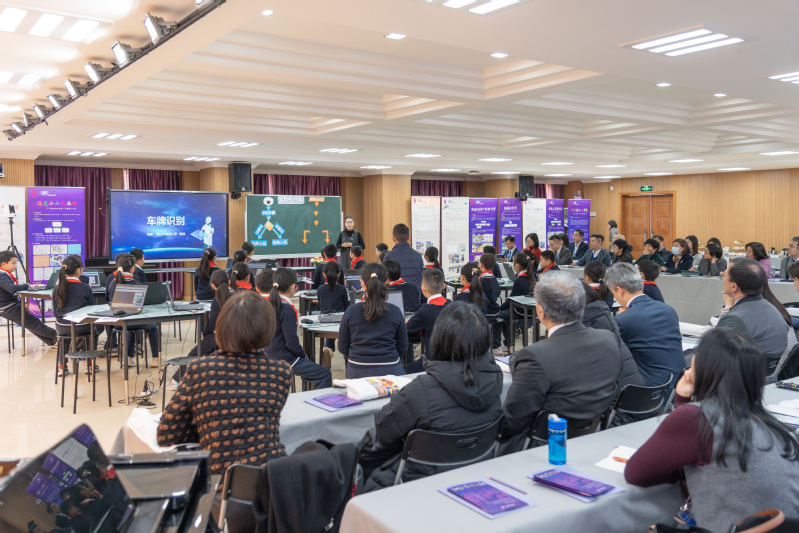
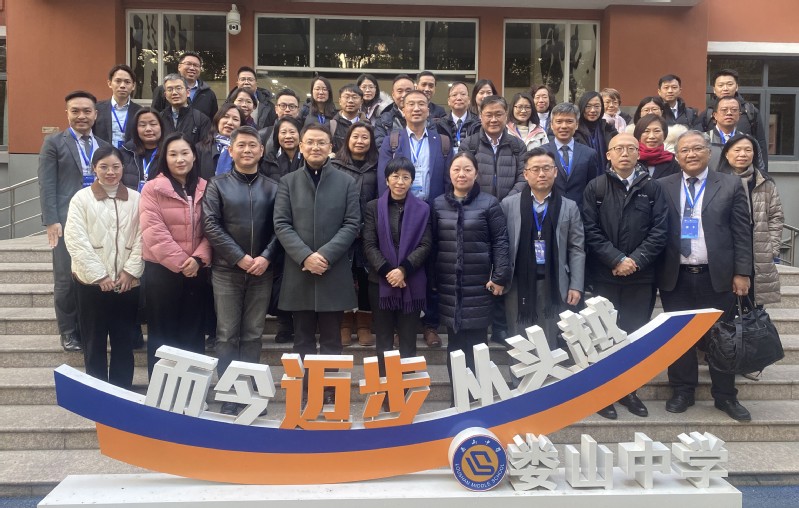
At Xuhui Middle School, Principal Zeng Xianyi introduced the school’s current status and achievements in science courses and STEM education, while also sharing his experiences and insights as a school leader—resonating deeply with the participants. Led by Director Zheng Bin of the Xuhui Middle School Cultural Development Center, who provided vivid explanations, the delegation learned about the school’s history and culture as the first school for the dissemination of Western learning to the East, visited the Huixue Museum and various innovation laboratories, and personally felt the school’s investment in science education and its remarkable achievements.
|
|
|
After visiting the campus of Huawei Lianqiuhu R&D Center, Xu Shengjie, Director of Huawei Shanghai Government and Enterprise Education Industry Solutions, delivered a lecture to the participants, outlining Huawei’s business in the education sector and future prospects. The two sides discussed potential cooperation on future digital campus solutions.
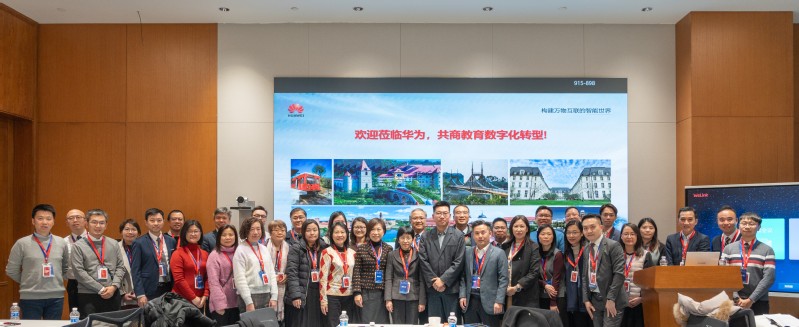
In addition, on the morning of January 10, Professor Wang Jie, Deputy Director of the International Teacher Education Center at Shanghai Normal University, organized a Shanghai-Hong Kong STEAM Education Symposium. Participants engaged in lively discussions on the current status and characteristics of STEAM education in Shanghai and Hong Kong, shared their respective experiences and practices in education, and explored ways to further promote STEAM education in both regions.
|
|
|
This Hong Kong STEAM Education Leaders Training Program not only provided a platform for in-depth exchanges between educators from Shanghai and Hong Kong but also offered new ideas and opportunities for promoting the common development of education in both regions. Through on-site visits, thematic lectures, and other forms, participants not only witnessed Shanghai’s innovative practices in STEAM education but also gained valuable experiences and insights. In the future, Shanghai and Hong Kong will continue to strengthen exchanges and cooperation, jointly promoting the development of STEAM education and contributing to cultivating talents with innovative spirit and practical ability.
Photos/Contributions provided by: UNESCO Teacher Education Centre



